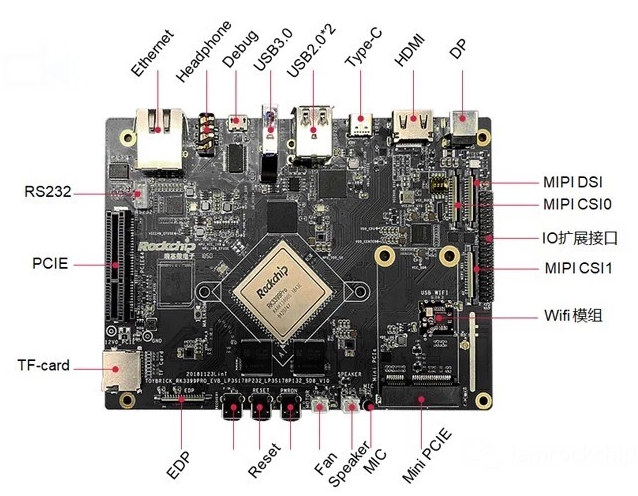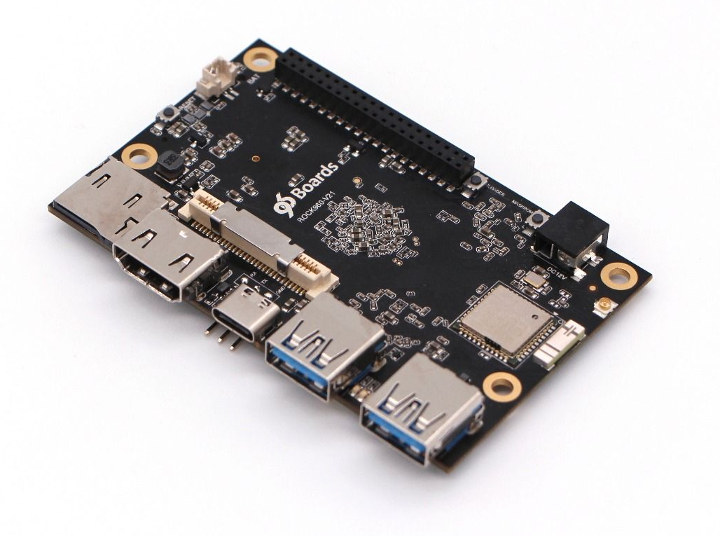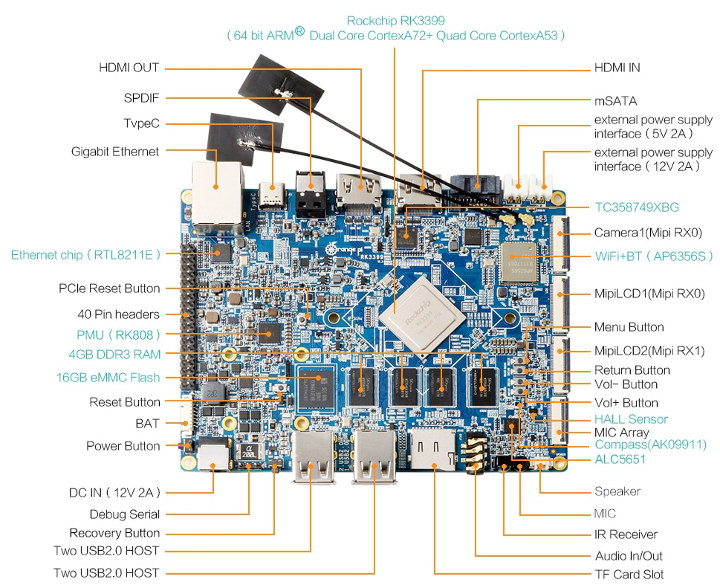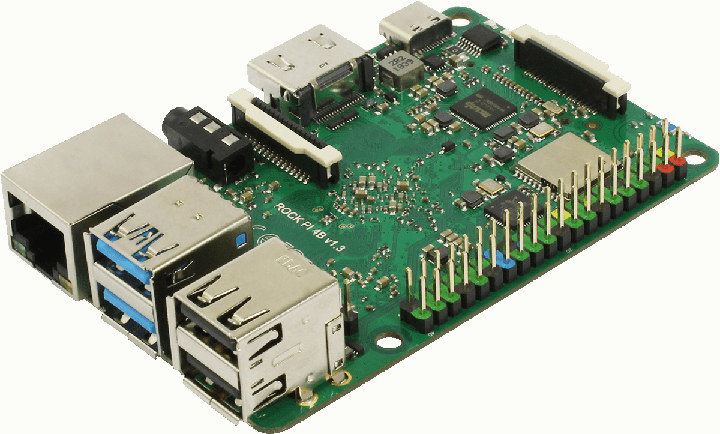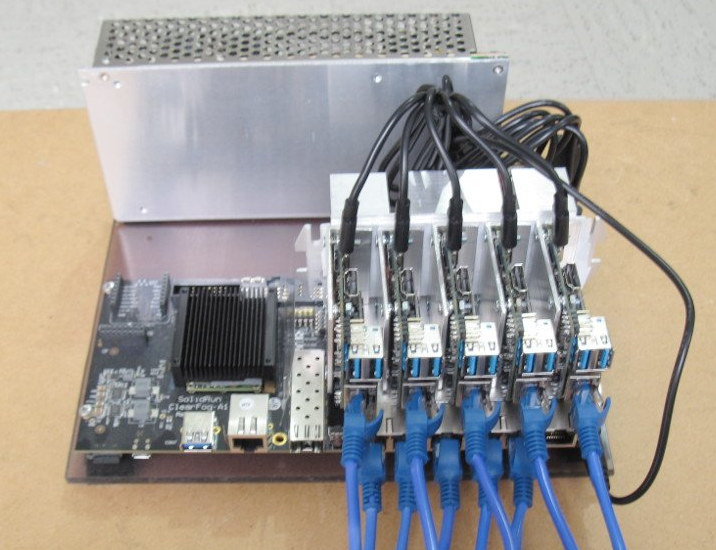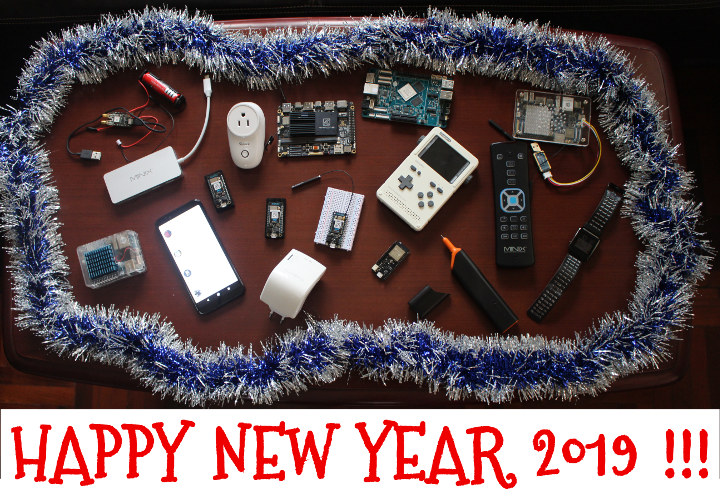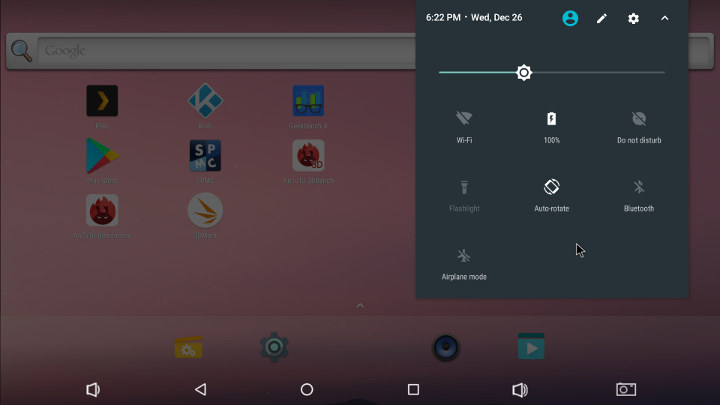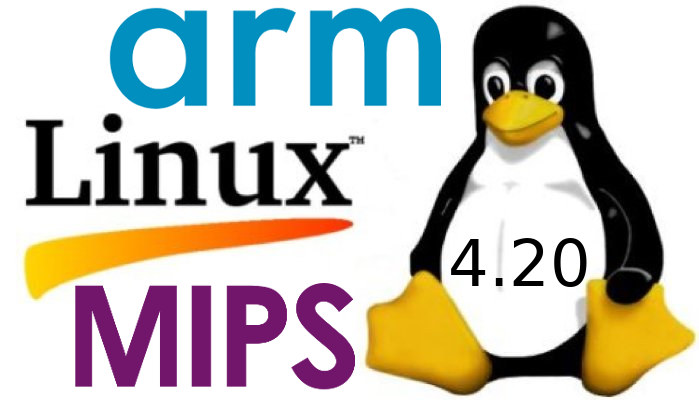We’ve heard about Rockchip RK3399Pro processor that adds an NPU (Neural-network Processing Unit) to Rockchip RK3399 hexa-core processor for about a year now. We’ve seen the official Rockchip RK3399Pro EVB in action last November, but this type of board is not usually for sale to the general public. The first RK3399Pro board that you could technically spend money on was Khadas Edge-1S via a crowdfunding campaign, but it’s still unclear when it will ship. Another option that I just discover is Toybrick RK3399Pro (TB-RK3399Pro) single board computer by VAMRS. Toybrick RK3399Pro board preliminary specifications: SoC – Rochchip RK3399Pro hexa-core big.LITTLE processor with 2x Cortex A72 cores up to 1.8/2.0 GHz, 4x Cortex A53 cores @ 1.4 GHz, and an Arm Mali-T860 MP4 GPU with OpenGL ES 1.1 to 3.2, OpenVG1.1, OpenCL 1.2 and DX 11 support, and NPU delivering up to 3 TOPS System Memory – 3 or 6 GB […]
Cost-Optimized Rock960 Model C Board Sells for $69 and Up
96Boards compliant Rock960 board launched last year for $99 with Rockchip RK3399 processor, 2 to 4GB RAM, 16 to 32GB eMMC flash for $99 and up. However, now you can buy a Rockchip RK3399 SBC for as low as $45 plus shipping thanks to FriendlyElec NanoPi NEO4 board that comes with 1GB RAM and no built-in storage, relying instead on a micro SD card slot or eMMC socket. So VAMRS decided to design a cheaper version of their board with Rock960 model C that still benefits from being part of the 96boards ecosystem, is equipped with 1, 2 or 4GB LPDDR4 RAM, and the OS can boot from a micro SD card or an optional eMMC flash module. The 1GB version of the board is now sold for $69 on Seeed Studio with shipping scheduled for the 1st of February 2019. Rock960 model C preliminary specifications: SoC – Rochchip RK3399 […]
Orange Pi RK3399 Board Gets 4GB RAM for $100
Orange Pi RK3399 development board launched last year, further crowding the RK3399 space. The board did not target the lower end of the market with a $109 price tag, but still came with only 2GB of RAM. Shenzhen Xunlong has now introduced a 4GB RAM version of the board for $99.96, with the 2GB version now selling for $89.38. Both boards can be purchased on Aliexpress. Apart from the RAM capacity, Orange Pi RK3399 “4G” specifications have not changed: SoC – Rockchip K3399 hexa-core big.LITTLE processor with two ARM Cortex A72 cores up to 2.0 GHz, four Cortex A53 cores, and an ARM Mali-T860 MP4 GPU with support for OpenGL 1.1 to 3.1 support, OpenVG1.1, OpenCL, and DX 11 System Memory – 4 GB DDR3 Storage – 16 GB eMMC flash, micro SD card, mPCIe (for mSATA/LTE), and SATA interface Video Output/Input & Display Interfaces 1x HDMI 2.0 up to […]
Radxa Rock Pi 4 Review – Part 1: A First Look at RockPi 4B Performance Set
Hey, Karl here with another RK3399 board. This one is by Radxa and is called the Rock Pi 4. There are 2 main variants to this board and I was shipped the B version “performance set” which includes a power supply, heatsink, and acrylic case. Also shipped was 16gb eMMC 5.1 module, eMMC flashing board, and USB-TTL debug cable. It looks like the difference is the B version has AC wifi and GbE LAN with PoE support with a hat. The A version only has GbE. Rock Pi 4B Performance Set Unboxing Some of the more notable specs eMMC module support M.2 NVME SSD support (SATA not supported) HDMI 2.0 4k@60htz MIPI DSI 2 lanes via FPC connector 3.5mm audio jack MIPI CSI 2 lanes via FPC connector, support up to 8MP camera 802.11 ac wifi Bluetooth 5.0 40-pin expansion header : 1 x UART 2x SPI bus 2x I2C […]
A Look at a Small NanoPi NEO4 Build Farm
FriendlyElec NanoPi NEO4 is currently the cheapest and smallest SBC powered by Rockchip RK3399 hexa-core processor which packs two Cortex A72 “fast” 64-bit cores, and four Cortex-A53 “efficiency” cores, so it should be an obvious candidate if you plan on building an Arm build farm costs to its low cost, small form factor, and relatively good performance. As part of his work on HAProxy load balancer, Willy Tarreau often has to run time-consuming builds for Arm targets, and to speed up the builds he’s put together several Arm based build farms powered by low cost development boards / SBCs. Up to now he had a build farm powered by five MIQI boards featuring Rockchip RK3288 processor with four Cortex-A17 “fast” 32-bit processor, and controlled with a ClearFog Pro networking board. He’s now decided to build another similar build farm but with NanoPi NEO4 boards instead. Willy goes through the hardware […]
Year 2018 in Review, Top 10 Posts, and Some Stats
That’s it, we’ve already reached the last day of 2018, and it’s time to have a look back at what happened during the past year. On the mini PC front, Gemini Lake based mini PCs took over from Apollo Lake with some performance improvements, but I expected the price point to be a bit lower than it is today. Apart from further developments with regards to mobile processors, it feels 2018 was an off-year for processors, such as the ones found in TV boxes and development boards, with mostly more of the same. Allwinner and Rockchip did not release any really interesting processor, and Amlogic only launched S905X2 and S905Y2 which are mostly evolutions of their previous generation with an OpenGL 3.x capable GPU and USB 3.0. Rockchip RK3399 stood out this year, as despite being launched in 2016, it suddenly became popular again with many RK3399 SBCs coming to […]
Khadas Edge Review – Part 3: Android 7.0 Preview
Hey Karl here with a look at a preview of Android on the Khadas edge. Jean-luc has done 2 parts already. The first one looking at the hardware side, and a second looking at Ubuntu. A third img is available that for LibreELEC. The initial release was very barebones, and the 2nd version is much more polished with the Play Store installed now and overall feels snappier. Khadas is supposed to be sending an Edge over to Super Celeron, and I hope they follow through. DHL DHL really messed up my board. Here are some pics. I will only be testing with Ethernet because the WiFi antenna got damaged badly and even bent the heatsink. I think the board is slightly damaged as well. I can only flash using the buttons on the board and not the carrier board. Everything else seems OK. Due to the damage, I am using […]
Linux 4.20 Release – Main Changes, Arm and MIPS Architectures
After Greg K-H handling Linux 4.19 release, Linus Torvalds is back at the helm, and released Linux 4.20 just before Christmas: Let’s face it, last week wasn’t quite as quiet as I would have hoped for, but there really doesn’t seem to be any point to delay 4.20 because everybody is already taking a break. And it’s not like there are any known issues, it’s just that the shortlog below is a bit longer than I would have wished for. Nothing screams “oh, that’s scary”, though. And as part of the “everybody is already taking a break”, I can happily report that I already have quite a few early pull requests in my inbox. I encouraged people to get it over and done with, so that people can just relax over the year-end holidays. In fact, I probably won’t start pulling for a couple of days, but otherwise let’s just […]


